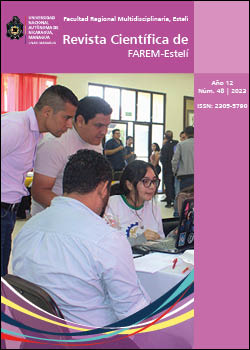An intercultural model for the administration of justice on the Northern Caribbean Coast of Nicaragua
DOI:
https://doi.org/10.5377/farem.v12i48.17506Keywords:
Autonomy, administration of justice, Caribbean Coast, intercultural dialogue, guidelinesAbstract
This research has defined some legal lines necessary to outline a proposal for an intercultural model of justice administration in the Northern Caribbean Coast of Nicaragua. The study is qualitative. In-depth interviews and focus groups allowed to know and analyze the different legal approaches and realities raised by key participants. This facilitated the construction, formulation and establishment of guidelines for coordination between the two systems of law. It is evident that the challenges and opportunities for coordinated action between the two systems originate from a series of concerns, both from state and indigenous justice operators. These concerns are centered on the need to create bridges of communication for the establishment of a horizontal dialogue that allows the establishment of the axes, principles and coordination mechanisms that favor multi-ethnic and intercultural relations. The particularities of the procedures used by the indigenous authorities should be taken into account, examining whether the essential nucleus of due process was respected in order to guarantee an intercultural understanding and interpretation of the facts and the applicable norms with a view to consolidating the effective exercise of the legal plurality existing in the region.
Downloads
198
HTML (Español (España)) 22
Published
How to Cite
Issue
Section
License
Copyright (c) 2024 Revista Científica de la FAREM-Estelí

This work is licensed under a Creative Commons Attribution-NonCommercial-ShareAlike 4.0 International License.
© Revista Científica de FAREM-Estelí

